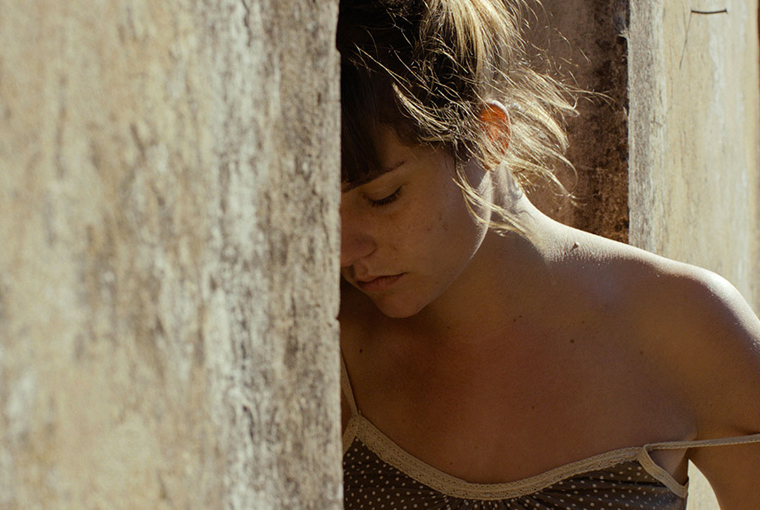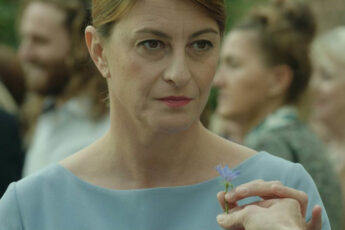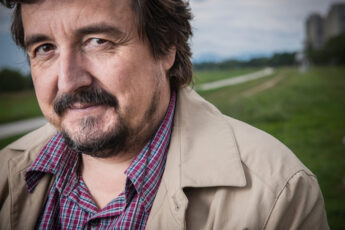
Dalibor Matanic’s High Sun is a powerful case study of historic recurrence. The film portrays the gruesome ethnic conflicts following the collapse of Yugoslavia in three Shakespearean love stories set in 1991, 2001 and 2011. Each time, the couple are on different sides, and although Matanić leaves their ethnic identity undefined, it is what tears them apart. The actors playing the couples (superb performance by Tihana Lazović and Goran Marković) are the same for each episode, which seems confusing at first, as one expects the story to develop in a 10-years-later fashion. Only little by little does the viewer realize that each story is distinct and that using the same actors again and again is a metaphor for the cross-generational continuity of ethnic problems in post-Yugoslavia.
The first story is set in the pre-war period of 1991, in the midst of growing tensions and anxiety. Carefree Jelena (Lazović) and trumpet player Ivan (Marković) dream about moving to the city, but friends and family oppose the relationship, especially Jelena’s brother who just got drafted. Their final confrontation marks the beginning of war. Ten years later, in the next episode, Lazović returns to her war-torn village. She has lost her brother in the war, a trauma which makes it hard for her to imagine a future. A neighbor “from the other side” helps her and her mother to rebuild their home, symbolically allowing Lazović to rebuild her trust in human relationships. By 2011, some of the carefree atmosphere of the film’s beginning has returned to the country. Marković, in the role of a student in Zagreb, returns to his village for the summer break. He, too, had left behind his family on the other side.
Matanić’s personal and emotional approach to this much-treated conflict makes it stand out. In fact, in light of the overwhelming amount of postmodern takes on the subject, such as Goran Paskaljević’s Cabaret Balkan, Srdjan Dragojević’s Pretty Village, Pretty Flame and Ademir Kenović’s The Perfect Circle, which all seem to shun sentimental immediacy, avoiding it by way of tried and tested techniques of distantiation (pastiche, irony, exaggeration), Matanić’ account of the experience of war is fresh because it doesn’t fear the emotional reality of those most suffering from it. In a way, the film feels more mature because it doesn’t reflect the need to deconstruct ethnic conflict, instead accepting it as a historical given. There’s some hope in the last tale, with Marković patiently sitting out his mistakes on Lazović’s doorsteps. On the second day, she leaves the door open. This last image sets a cathartic promise against the eternal return of the same.




Leave a Comment